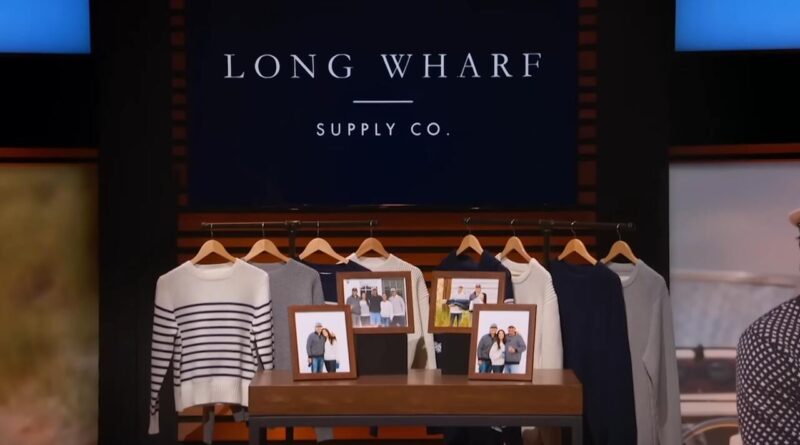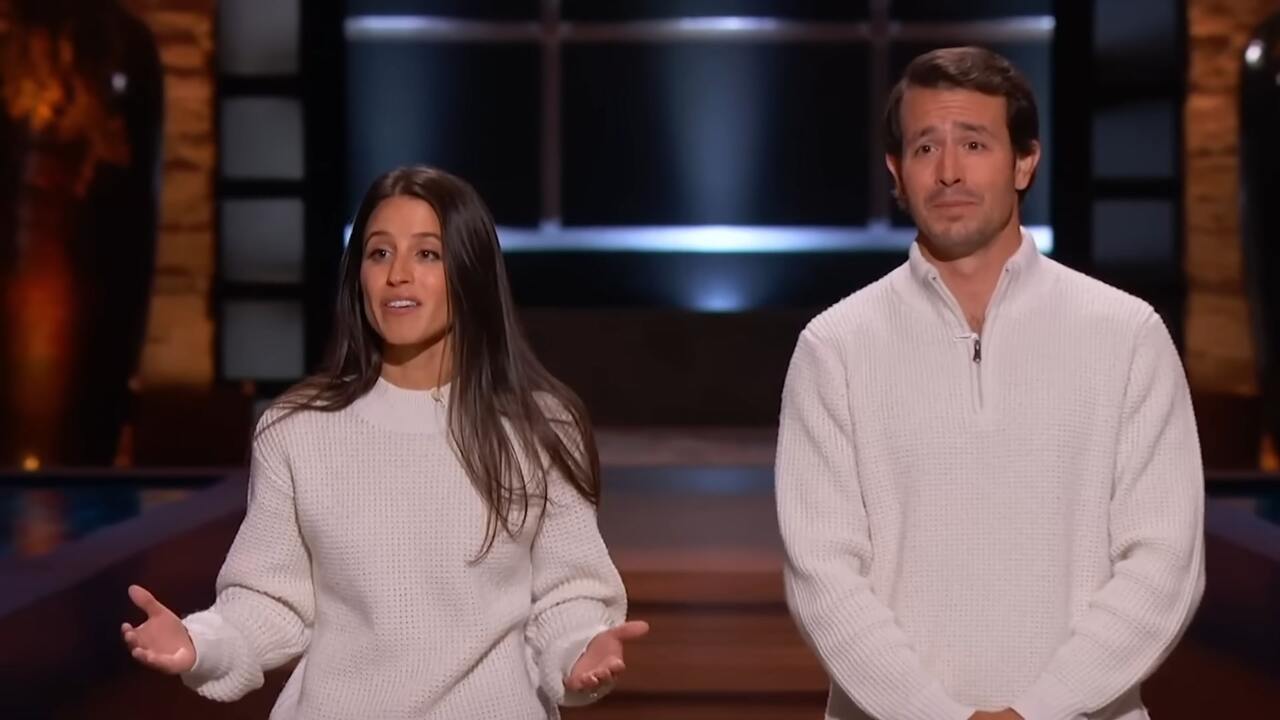Long Wharf Supply Co. Update | Shark Tank Season 13
Helping clean up Earth’s oceans is a worthy goal, especially when ocean plastics are an increasing problem. Mike and Lauren Lamagna, the entrepreneurs behind Long Wharf Supply Co., seek to use ocean waste (including recycled oyster shells) to create eco-friendly sweaters and accessories. After pitching their company during
If you’re short on time, here’s a quick overview of what happened to Long Wharf after
Mike and Lauren Lamagna appeared on
| Shark: | Result: |
| Mark Cuban | No offer |
| Lori Greiner | No offer |
| Daymond John | No offer |
| Kevin O’Leary | No offer |
| Peter Jones CBE | No offer |
Shark Tank Long Wharf Update
- Entrepreneurs: Mike and Lauren Lamagna
- Business: Recycled oyster shell sweaters
- Ask: $375,000 for 15% equity
- Result: No deal
- Shark: None
The goal of siblings Mike and Lauren Lamagna’s company Long Wharf is clear: clean up the oceans, recycle oyster shells that would otherwise be discarded, and sell sweaters from the materials.
Original fisherman's sweaters made from a soft blend of recycled oyster shells, recycled water bottles, and cotton or natural lambswool.
Sweaters may not be a natural place to take that idea, but the Lamagna siblings claim that this is just the beginning. Their Fisherman sweaters are 10% lambswool, 50% recycled material, and the other 40% is a plant-based viscose and nylon blend.
Each of their comfortable, weighty sweaters reseeds about 30 oysters. Oysters naturally filter seawater, making them a great tool for cleaning up the world’s waterways.
This, combined with recycled ocean plastics, makes them a premier product that’s never been seen before.
While Long Wharf has been around since 2016, they only started selling sweaters in 2020. Each sweater sells for $128 to $158, and they cost $22.50 to $33.50 to make.
However, when asked, the entrepreneurs reveal an expensive customer acquisition cost.
Despite this, in the last 12 months they’ve sold $495,000 in sweaters alone. When asked about how the operation is run, Mike reveals that he owns 100% of the company.
His sister Lauren works on the project outside of her full-time job and doesn’t own any equity, which is a red flag for the sharks.
Kevin O’Leary interrupts to go over the valuation. Based on the current sales and business model, he doesn’t think the company is even worth what they’re asking for investment.
It’s a huge valuation for something that isn’t proven quite yet. It’s too much to ask, so Kevin drops out.
Daymond John tells a story about his daughter’s recycling awareness. He could be passionate about the project, but it’s too much to pay at this point. He’s out, despite wanting to support the company.
Peter Jones doesn’t know if there’s a market for sweaters in this way and Lori Greiner interrupts to ask if there’s something bigger they might be able to do, as these are expensive sweatshirts that aren’t doing as much as they could for the environment.
Mark Cuban plays off the back of this to ask if they could maybe have a more affordable option.
The sweaters are a high entry point and not everyone can participate at a high price. However, the entrepreneurs can’t directly answer his question, so he drops out.
Lori really wanted them to answer Mark’s question. She says that she could have joined with Mark if they had been able to make a leap to a more affordable option. However, they missed the opportunity and Lori is out.
This leaves Peter. He likes the product and the idea, but there are some issues. The valuation is too much, but he also takes issue with the thought that Lauren doesn’t own any equity in the business.
When pressed, Mike offers Lauren 10% equity in the company, which seems to appease Peter. He offers $375,000 for 45% of the business because he can take this to global markets. It’s a sharky deal, but it’s safe for Peter.
The entrepreneurs try to counteroffer at 20%, but Peter isn’t having any of it. They decide that they don’t want to give away that much equity and walk away from the tank without a deal.
What happened after they left the tank? Here’s what’s new in our Long Wharf update.
With a current net worth of around $3 million, Long Wharf Supply Co. seems to be doing okay even without help from the sharks. They’re still spreading their clean ocean message and have amassed more than 49K Instagram followers.
Their fisherman’s sweaters, accessories, and small goods are available for purchase on the Long Wharf Supply Co. website, and they’re carving out retail space with products sold in upscale stores nationwide.
With a worthy mission and a quality product, we’re sure the next Long Wharf update will be a good one.
Before you go, be sure to check out updates from the other companies featured on
For more on
Andrew Smith is the founder and owner of Shark Tank Recap. He is a longtime Shark Tank fan that has been watching it for years and has seen every episode multiple times. His friends know him as the Shark Tank expert, because he can answer any question about the show! His favorite Shark Tank products are Bertello's pizza oven and Bug Bite Thing!



